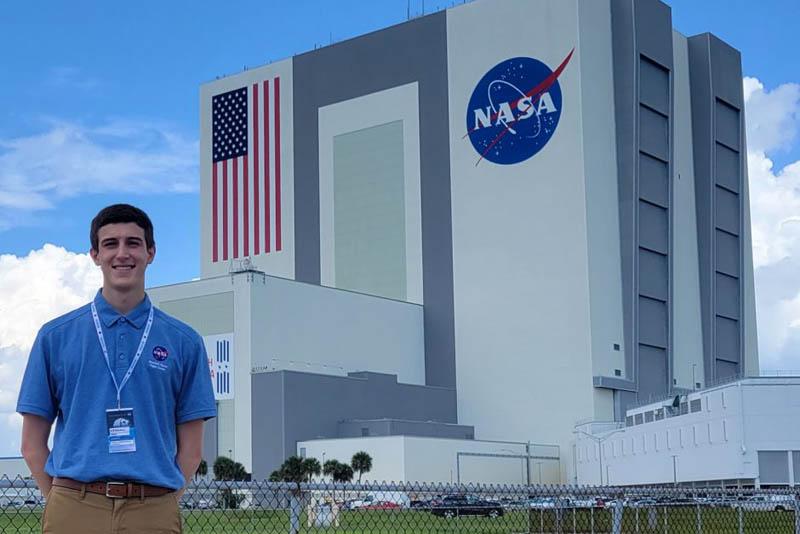April 01, 2024

By Brian Consiglio
University of Missouri graduates leave campus fully equipped to forge a path toward career success.
A new career outcomes survey shows that more than 95% of recent MU graduates found employment, continued their education, joined the military or started volunteer service within six months of spring graduation. Prospective students and their families are taking notice, as applications for enrollment are at a record-setting pace, up 14% in 2024 compared to 2023.
So, what does it mean to be a Mizzou grad? Here’s what one recent Mizzou Engineering alumnus is doing now.
Kendall Feist grew up on a farm in Cologne, Minnesota, and had 101 students in his graduating high school class. When he arrived at the University of Missouri, he decided to set his sights on the stars — literally. Feist was a mechanical engineering major who spent most of his time outside of class on the Mizzou Space Program.
“Mizzou does a great job of encouraging you to join a student organization and seek leadership positions, and getting involved with the Mizzou Space Program helped me make friends and pursue my passions,” Feist said.
Feist said the highlight of his undergraduate career was competing at the Spaceport America Cup, an international rocket competition near White Sands National Park in New Mexico. The experience helped prepare him for his job at NASA, where he works with a team to operate and maintain a rocket engine test stand at NASA’s Marshall Space Flight Center in Huntsville, Alabama.
“Propulsion testing never gets old,” Feist said. “There is always a feeling of excitement when we are about to fire the engine. The skills and experience I gained while at Mizzou helped prepare me for my job at NASA now.”
When reflecting on his undergraduate career at MU, Feist credits his mentors, including engineering technician Ghassan Al Bahhash for his mentoring in MU’s machine shop; Director of Facilities Aaron Saucier for securing materials and space for the Mizzou Space Program to operate; and Professor Craig Kluever for the knowledge gained in his aerospace propulsion class.
“Getting so much hands-on experience in the engineering building at Mizzou was very helpful for preparing me for my future career, because now I am hands-on in my job every day,” Feist said. “I also learned the importance of collaboration, as the coordination I now do in my job with mechanics, electricians and other engineers is similar to how I worked together with my friends on the Mizzou Space Program.”
This summer, Feist plans to go back to New Mexico as an alumni advisor to support the Mizzou Space Program as its members plan to compete again in the Spaceport America Cup.
“This year they are building a rocket to carry a payload to 30,000 feet and will travel at 1.7 times the speed of sound,” Feist said. “When we tried that my freshman year, our rocket blew up, but we have learned a lot since then, so I am sure they will do great.”
This story is part of a Show Me Mizzou series on recent graduates. Read more here.